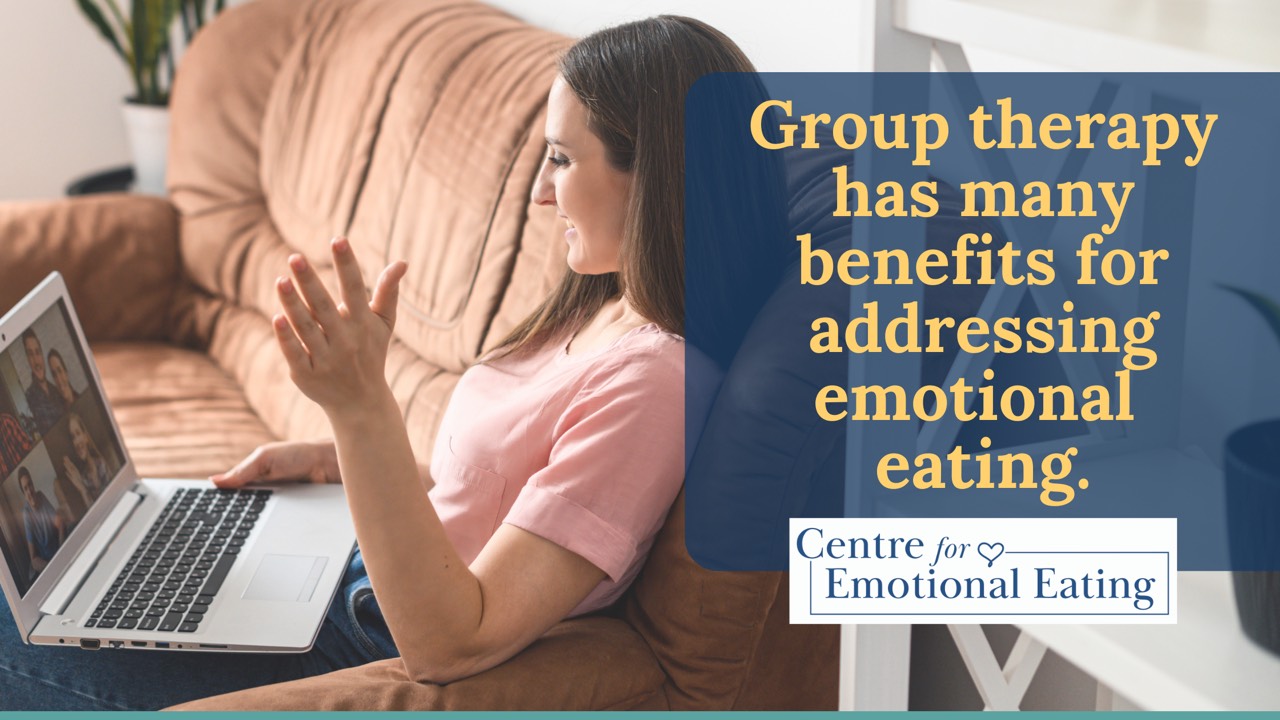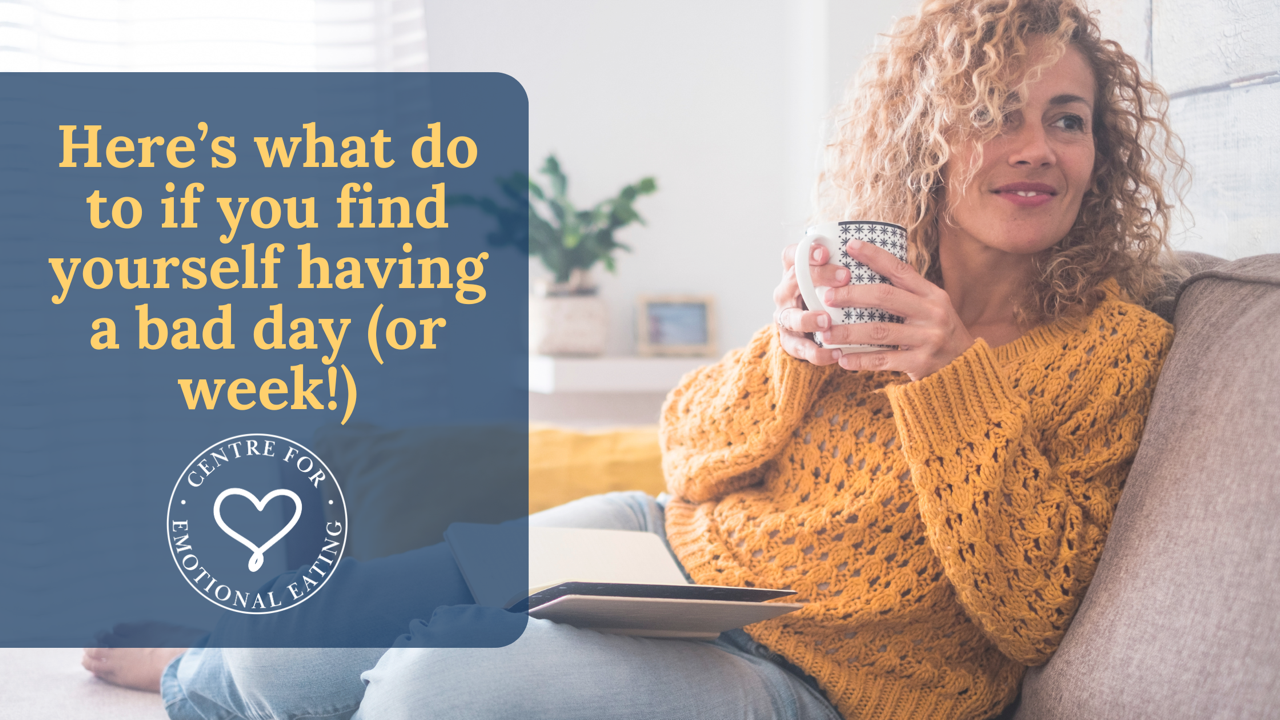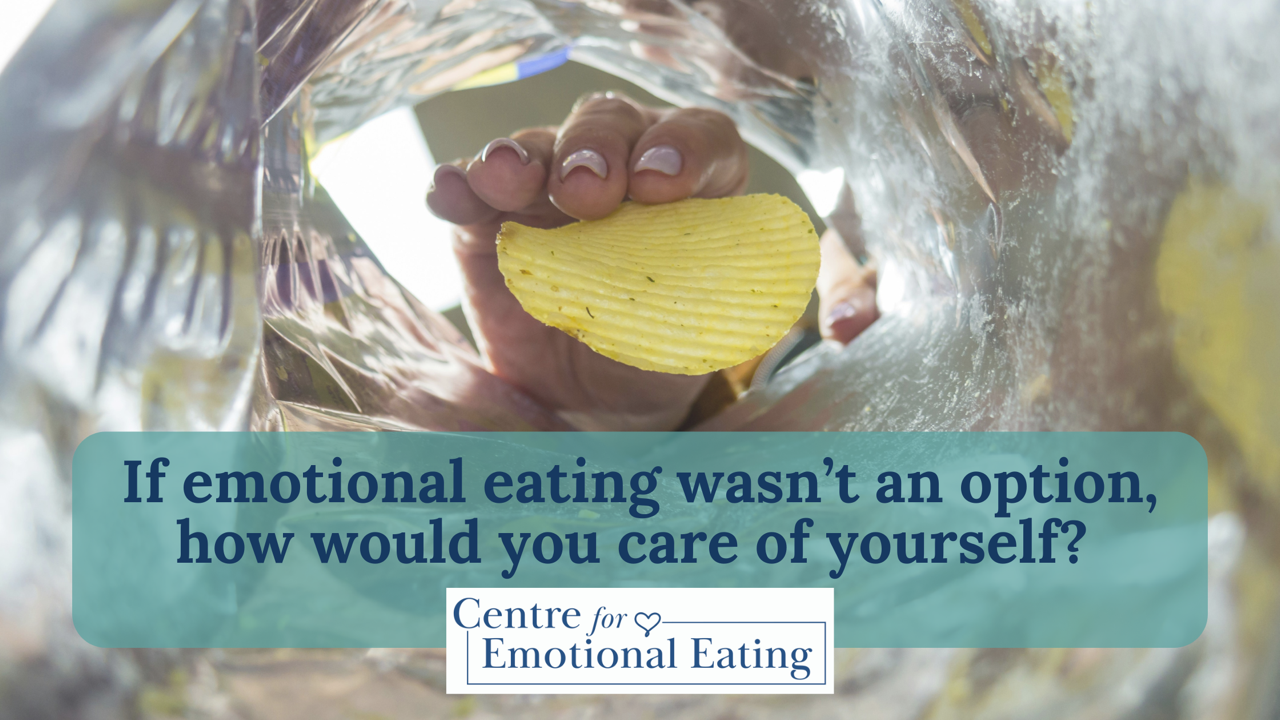BLOG
Find support not just for emotional eating, but all aspects of your well-being.
3 Ways Group Therapy Will Transform Your Emotional Eating

In addition to growing my one-on-one registered psychotherapy practice, over the years I ran emotional eating groups using pre-created content. I could see the power of the group concept, but the material wasn’t the right fit. So, I created The Quiet Craving, a program based on my experience of more than a decade of working with clients who emotionally eat and as a group leader.
I know that many people are hesitant about group therapy, especially when it comes to something as vulnerable as emotional eating. It is something that thrives when hidden and there is a societal belief that eating is “simple” and that you should “just be able to get a handle on it.” Bringing your experiences out in front of others can feel incredibly scary but, again and again, I have seen the transformational experience of group therapy for emotional eaters.
If you’re tired of emotional eating and intimidated by group therapy, this blog post is for you! Read through the powerful ways group therapy can trans...
Emotional Eating Toolkit: Creating a Comfort Box

We all have bad days (heck, even weeks!) where we feel drained, angry, or even upset most of the time. If this comes up for you, it is time to create a comfort box. This can be a great resource to build yourself back up when you’re feeling low.
Here’s how to do it:
The next time you’re feeling in a good place, put together a physical box or digital list that has things that bring you comfort when your mood is low. You can include:
- A playlist or movie that lifts you up (or helps you cry). This could be either to pump up your energy or create an emotional release. It can sometimes be difficult to allow ourselves to cry when we’ve been holding it together for so long; we often judge ourselves less when we’re crying over a fictional character.
- A candle you’ve always wanted to burn or a face mask you’re wanted to try. Often, we keep certain things for a “special occasion”, but why wait! Being able to indulge in little luxuries might just give you the small boost you’re looking for (in ...
Client Insight: “It felt scary when therapy started to change how I saw myself and others.”

Doing the work in therapy often comes with challenging the stories you’ve always told yourself. Over time we solidify ideas about ourselves, our relationships, and the world around us. This can sound like:
“I’m broken.”
“I’ll always be an emotional eater.”
“My mom did the best she could.”
But as you face these narratives about yourself, you’ll start to find the wiggle room, the space to start re-thinking how you see yourself and what that means for your identity. This can feel destabilizing! It is scary if you always thought of yourself or those in your life one way, only to unpack that things are different that they first appeared. It can feel easier to stick with the familiar way you’ve always understood your family and friends, and even yourself.
While this experience is uncomfortable, it is also a great sign that therapy is getting to the root of your experiences. Let’s flip the script: changing how you see the world is like taking off a pair of tinted sunglasses.
Let’s try t...
The Only Diet Rule You Need

Does this sound familiar: you’ve had a weekend of saying “screw it!” and have eaten every food you can think you want (even if it doesn’t taste amazing). It’s now Sunday and you feel overfull, your brain is foggy, and you’re beating yourself up for all the things you ate. You decide that tomorrow you’re getting “back on the wagon” and will “be good” by starting a new diet. Rules are back on Monday! No sugar, less carbs, all protein and vegetables and definitely an hour or more at the gym.
Stop. Re-read that paragraph. Notice how this example goes from what feels like a free-for-all/there are no rules to adding in ALL the rules? This is called the binge/restrict cycle and the whole system keeps you stuck because you get fed up with how you feel when you’re overeating (so you set rules) and then you feel deprived by such a rigid way of eating that it is only natural for you to want some freedom around food.
This is a really common situation, so if this seems familiar and maybe you’ve e...
How to Find a Good Therapist (that’s a fit for you!)

Spending 50, or more, minutes opening up to a therapist can feel intense! It is understandable that you’d want to feel comfortable when talking about your emotions and trauma. Here are 4 things to consider when you’re searching for a mental health professional to work with:
Identify your needs
It can get confusing fast when looking at types of therapy, what heck is Conative-behavioural Theory or Eye Movement Desensitization and Reprocessing? There is no need to deep dive into research about types of therapy (unless you want to!), but consider reading websites and blurbs about therapists to narrow down the support you’re looking for. For example, if you suffer from anxiety, then make sure it’s mentioned as an area of expertise in their bio. If you’re in Canada, try Psychology Today to search for a therapist or the American Psychology Association if you’re in the US.
Consider your needs
Do you feel shy about opening up or maybe you prefer hearing that others are experiencing similar ...
Client Insight: “I needed a plan to support myself for how I felt after a therapy session.”

If you are on your therapy journey—in one-on-one sessions, online courses like First Step, or other—we applaud you! It takes a lot of courage to open up and decide to actively work on yourself.
You might be finding that after a session you don’t feel 100%. You may walk away feeling sad, angry, exhausted or anything in between. And we want to reassure you that that is completely normal. It can be emotionally and physically draining to be vulnerable when looking at your behaviours and digging into your past trauma—some even call this feeling “a therapy hangover.”
Here’s how to not let these after appointment feelings stop you from doing this important work. Many clients have shared that there are specific things they do to give themselves comfort.
- Book your appointment or time for your online course at the end of your work day. This means you don’t have to shift back into a work headspace immediately after, putting back on a “I’m fine” mask in front of others. If you can’t schedule ...
Letting Go of Food Rules

A lot of emotional eaters use food rules to try and control their eating. This might look like:
- Counting calories, points, or macros.
- Not eating after 7:00 p.m.
- Not eating or limiting carbs, sugar, or fat.
- Leaving food on your plate.
- Drinking coffee or diet soda to fend off hunger.
Sound familiar? These rigid rules are a reaction to the out-of-control-feeling experienced when strong emotions take over and you head to the fridge looking for something to numb out on. We learn rules from our parents, friendship circles, diet culture, and social media. These rules also make you feel as if you are in control (at least for a little while), which makes it extra frustrating when you “fall off the wagon.”
It may seem logical to try and balance situations where you eat a lot of food with other times of much less food, but the truth is it doesn’t even out that way… And you end up getting stuck in the restrict/binge cycle. This looks like: strict diet > have a craving or emotional exper...
Perfect Eating and Perfect Health?

Let’s talk about the messaging about food we absorb. While the concept is simple—what we hear and how it affects us—breaking down where we get these messages from, and if we should listen to them, is a bit more complicated.
There’s what your parents taught you. This might sound like “finish your plate”, “no dessert until you eat your vegetables”, “don’t be such a couch potato.”
There’s what the diet and food industries are repeating. “Lose 50 lbs in a month”, “workout only 20 minutes to blast fat”, “you too can have a celebrity body!” They’ll have us believe that bread is terrible for us, but a lab-made protein powder is the answer to our weight loss visions.
These two examples may be ones you’ve come to be more aware of as you’ve gotten older, read more, or even worked with a therapist on. But one area you may not know you’re getting messaging about is the medical sphere, like your doctor. It might show up in beliefs like you’re too overweight to get quality medical care (and may h...
Concrete Examples to Push Back Against Your Inner Critic

It is common to suffer from low self-esteem here and there. But often when someone is in an emotional spiral, or their depression is strong, out inner critic seems to be blasting negative thoughts on repeat. And it can be extremely powerful as it uses the first person:
- “I’m so fat. No wonder no one loves me.”
- “Look at how I jiggle. I’m so disgusting.”
Sometimes the voice might instruct you to pinch, suck in, or smooth certain parts of your body. These thoughts can feel true to us if we don’t challenge them. But how do you even begin to do that? Let’s look at the same comments above and see how we might push back against them:
- “I’m so fat. No wonder no one loves me. Wait. This can’t be true, my partner/friends/family tell me they love me.”
- “Look at how I jiggle. I’m so disgusting. STOP! That thought isn’t helping me.”
In both examples, you can see there is a need to break the negative thought off with “wait” or “stop.” These short words shock that negative thought! Sometim...
Client Insight: “Therapy was about learning to manage my trauma, not get rid of it”

Emotional eaters tend to be tempted by a quick fix, especially if you’re weight goes up and down with your feelings. Heck, that’s how they sell diets to us again and again: “lose 20 lbs in a week!”, “Here’s the one thing you need for lasting weight loss.” The truth is, there is no quick fix when it comes to a healthy lifestyle. And that’s true about therapy too.
When first dipping their toe into therapy, clients will often begin look for a concrete timeline on when they can expect to have managed their grief or processed their trauma. This makes sense: we want to know when the tough stuff will end so we can get on with living out lives. But the difficult thing about these experiences that impact our emotions, outlooks, and actions, is that they will always be with us in some capacity.
But don’t lose hope! Therapy not only gives you an outlet to process your emotions, but you also learn strategies along the way that you can draw on when you need to. For example, if someone had lost th...


